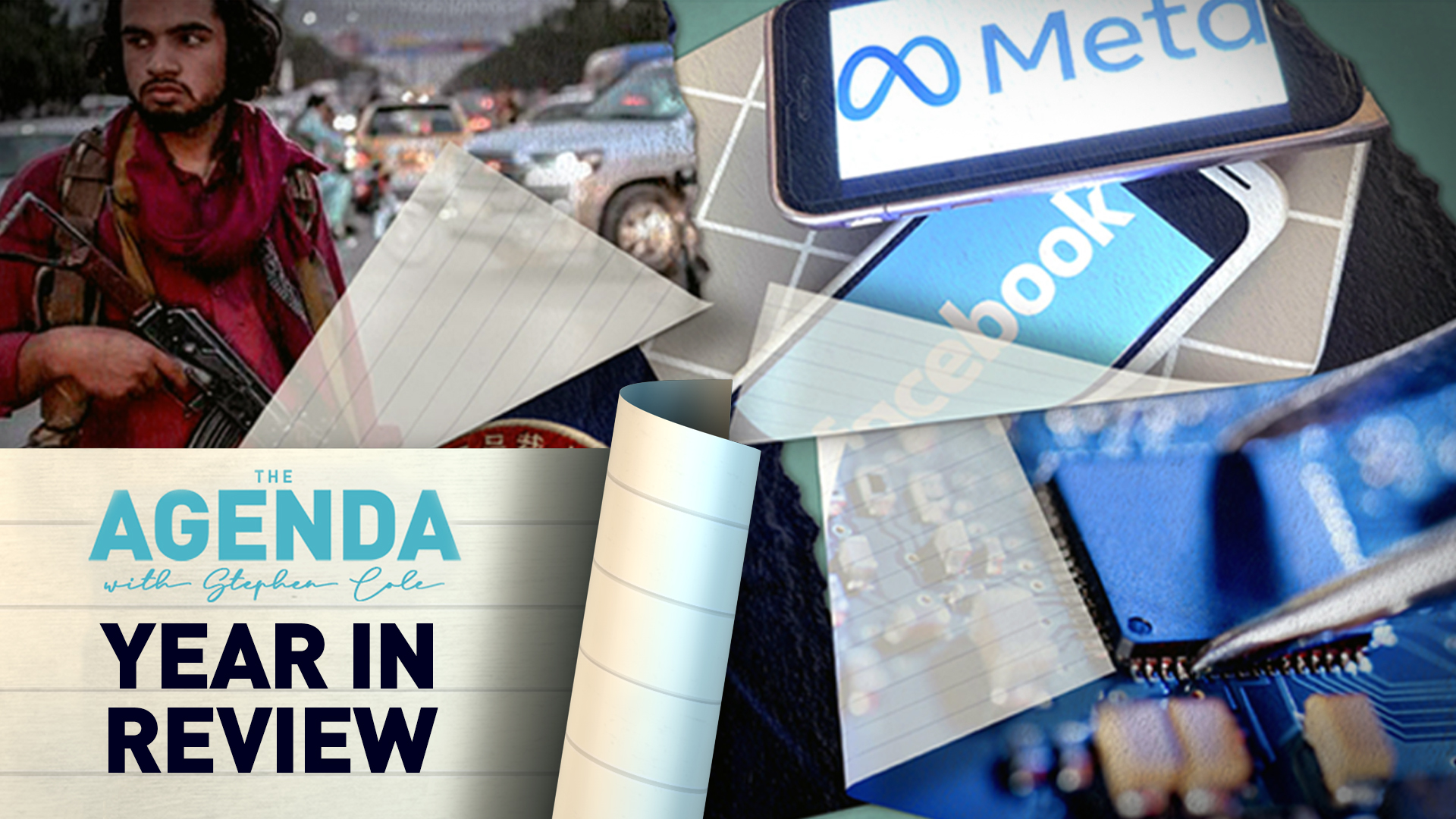29:41

In 2021, the COVID-19 pandemic and concerns over climate change dominated the news but several other big events were firmly on our radar. This week we're continuing our look back at the key moments of 2021 on The Agenda.
In August, the return of the Taliban following the U.S.-led Nato withdrawal from Afghanistan sent political shockwaves around the world. The prospect of the Taliban back in control and especially what that might mean for the country's female population was one of the biggest initial concerns. Stephen spoke to Afghan politician Farzana Elham about her concerns for the future of Afghanistan.
CLICK ON THE ARROWS TO SCROLL
The hasty American retreat shocked many around the world as did images of Taliban fighters in the Presidential palace in Kabul soon after. Whether a Taliban government will be able to rebuild Afghanistan is still very much open to question - after several months now back in control.
In September, Stephen spoke to two important figures from the Nato side, General David Petraeus, a former U.S. commander in Afghanistan and Adam Thomson, British diplomat and former permanent representatives to Nato.
2021 also marked the end of Angela Merkel's 16-year tenure as Chancellor of Germany. But the result of September's election to choose a successor was far from clear-cut and months of political wrangling ensued. Stephen asked a panel of experts whether that was proof that Merkel was the glue that had been holding a fractious political system together.
Sticking with Europe - almost five years after the UK voted to leave the European Union - it finally left the bloc on January 1, 2021. In April - 100 days after that - We tried to discover exactly who could be considered the winners and losers of Brexit.
The G7 summit held in the UK in June was the first face to face meeting of the leaders of the select club of wealthy countries since the pandemic began. The focus was largely on vaccines, the climate and the global economy. But what did it all really mean for the future of global cooperation? Stephen Cole spoke to three experts to get their views on whether G7 meetings really matter.
One of the ongoing stories of 2021 was the global shortage of semi-conductors - the chips that control everything from cars to fridges, gaming consoles to rice cookers. The shortage had largely been put down to a surge in demand for technological devices as the world spent more time at home during the early stages of the COVID-19 pandemic. Rana Mitter, a professor from the University of Oxford's China Centre explained to us how geo-politics is also playing its part in the global chip crisis.

2021 has been a big year for Big Tech - as the multi-billionaires behind some of the world's largest companies got richer and even more powerful. In February, the story was all about Facebook when it was unfriended by the Australian government in a row over payment for news content. Each side claimed victory when the standoff - which affected millions of the App's users - was resolved. But that certainly hasn't ended calls for far stricter regulation on the tech giants. The Agenda asked former Facebook executive in Australia and New Zealand Stephen Scheeler just how significant this case really was for the future relationship between governments and Big Tech.

Almost 50 years since an astronaut last set foot on the lunar surface - the race to the moon hotted up once again. China is the country which has most recently been there - the Chang'e probe touching down at the very end of 2020 to collect samples of rock for analysis. Xu Yansong, Director of the China National Space Administration explained what had been learnt from that mission.

